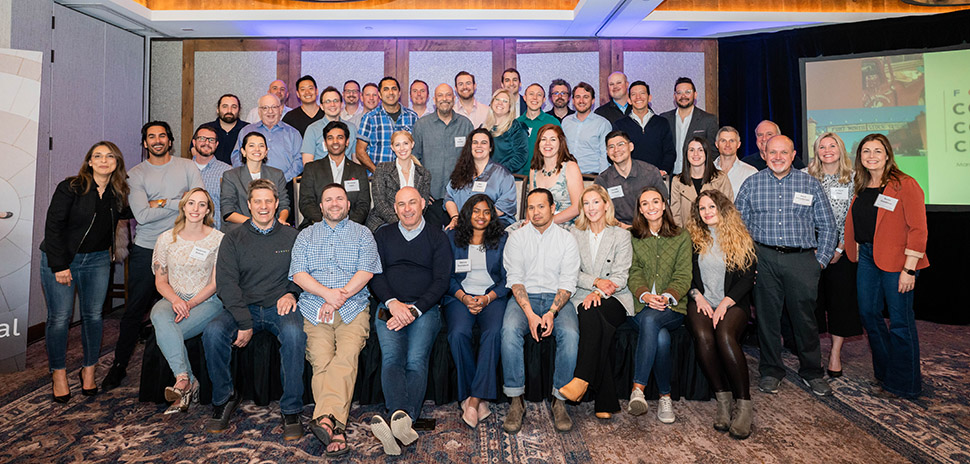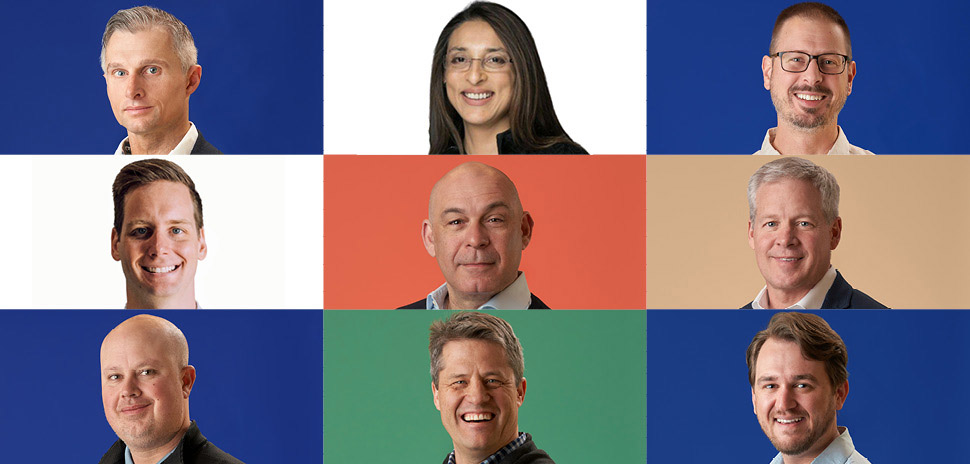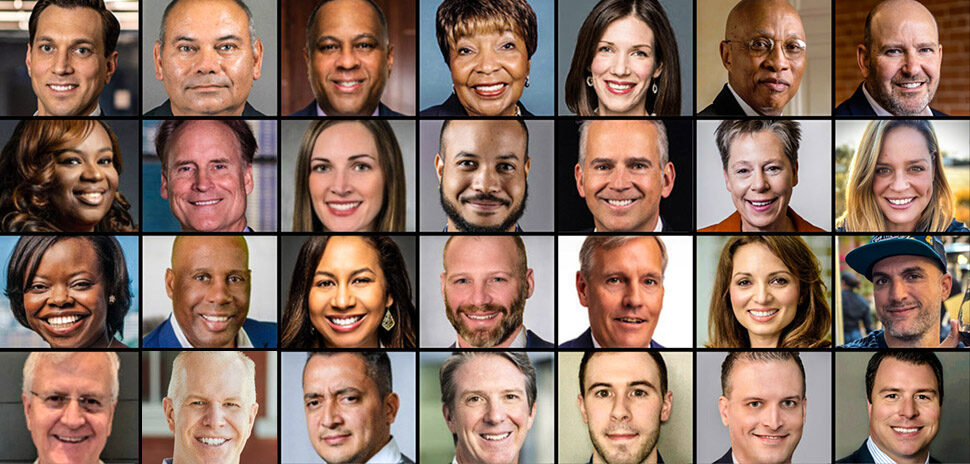Seeing the explosive growth in the direct-to-consumer market over the past few years, Foundry Brands is looking to build a portfolio of brands with loyal followings.
After launching last year with $100 million in debt-free equity capital, the Dallas-based acquisition platform is leveraging the deep expertise of its co-founders in the e-commerce space with the ultimate goal of amassing a portfolio of 30 to 50 brands. And a little more than a year into its effort, the company is well on its way.
“Foundry is trying to buy brands that really do matter to their customer base, that make their lives better, and that create impact,” Matt Rhodes, Foundry’s chief development officer and co-founder, told Dallas Innovates. “Ultimately, we’re looking to be a multibillion-dollar business.”
E-commerce acceleration

A Foundry Brands team photo from a February 2022 event. [Photo: Foundry Brands]
Focusing on companies in spaces like pet, home, outdoor, and personal care, Foundry acquires majority stakes in direct-to-consumer brands with revenues between $1 million and $50 million with the intention of helping them accelerate growth through various e-commerce channels and some retail exposure. Vetting the companies based on things like scalability and durability, Foundry uses a data-driven platform to boost a brand’s marketing, product development, and technology efforts.
“The basic business fundamentals of consolidating brands under a shared service portfolio is something that has been done for a century,” Rhodes said. “That has never been really done in an e-commerce setting. And given how complex e-commerce has become in the last five years, it makes sense to have a team of 50-plus experts that are around a brand.”
While Foundry’s brands span a number of different industries, Rhodes said a unifying theme is passion from their consumer bases and a community surrounding their products, which he calls “micro-tribes.” Strong messaging and superior products lead to repeat purchases and the willingness to share the brand organically, Rhodes said. It’s also something that helps brands stand out in a crowded field, as the e-commerce boom has created more competition and led to a move away from mass consumer brands.
“COVID accelerated ecommerce to an incredible level, where we experience 10 years of e-commerce growth in the period of 12 months. It created a much larger market and created incredibly higher levels of complexity than ever existed before,” Rhodes said. “Communities ultimately drive loyalty for brands. They know that the brand, the messaging, and the community that comes with that is worth the extra price.”
Foundry looks to the long-term
Launched last July with funding from LightBay Capital and Monogram Capital Partners, Foundry has been a remote-first company, initially listing its headquarters in Austin, where president and co-founder Tom Shipley is located. When it brought on Dallas-based Helen Vaid, the former chief global customer officer at Pizza Hut, as CEO, the company made North Texas its de-facto headquarters. Other members of Foundry’s founding team include Kyle Walker, chief acquisition officer, and Rhodes, who previously worked with publicly traded asset management firm Ares Management.
Because the initial funding is what Rhodes calls a “patient capital structure,” Foundry is able to navigate market trends with a five- to 10-year goal focused on “quality over quantity” of acquiring up to 50 brands. Currently, the company has eight companies in its portfolio, with the most recent being Fort Worth-based men’s grooming product company Supply. While Foundry sells its products globally, so far the companies it has targeted have come from the U.S.
“There’s something to be said about focus, discipline, and having a portfolio of brands you can really take care of, versus spreading your focus across hundreds of brands,” Rhodes said. “We’ve been super fortunate to have investors who say, ‘We realize there’s going to be bumps in a startup but we think that there’s an incredible opportunity to build a multibillion dollar opportunity.'”
Eyeing expansion
With Foundry seeing double-digit growth in the revenue of its brands, Rhodes said it will look to expand its acquisition reach into Canada and eventually Europe.
“This idea of ‘micro-tribes’ is really around the custom revolution that customers can and want to choose products that most aligned with how they think about the world and the needs that they have,” Rhodes said.
![]()
Get on the list.
Dallas Innovates, every day.
Sign up to keep your eye on what’s new and next in Dallas-Fort Worth, every day.






























